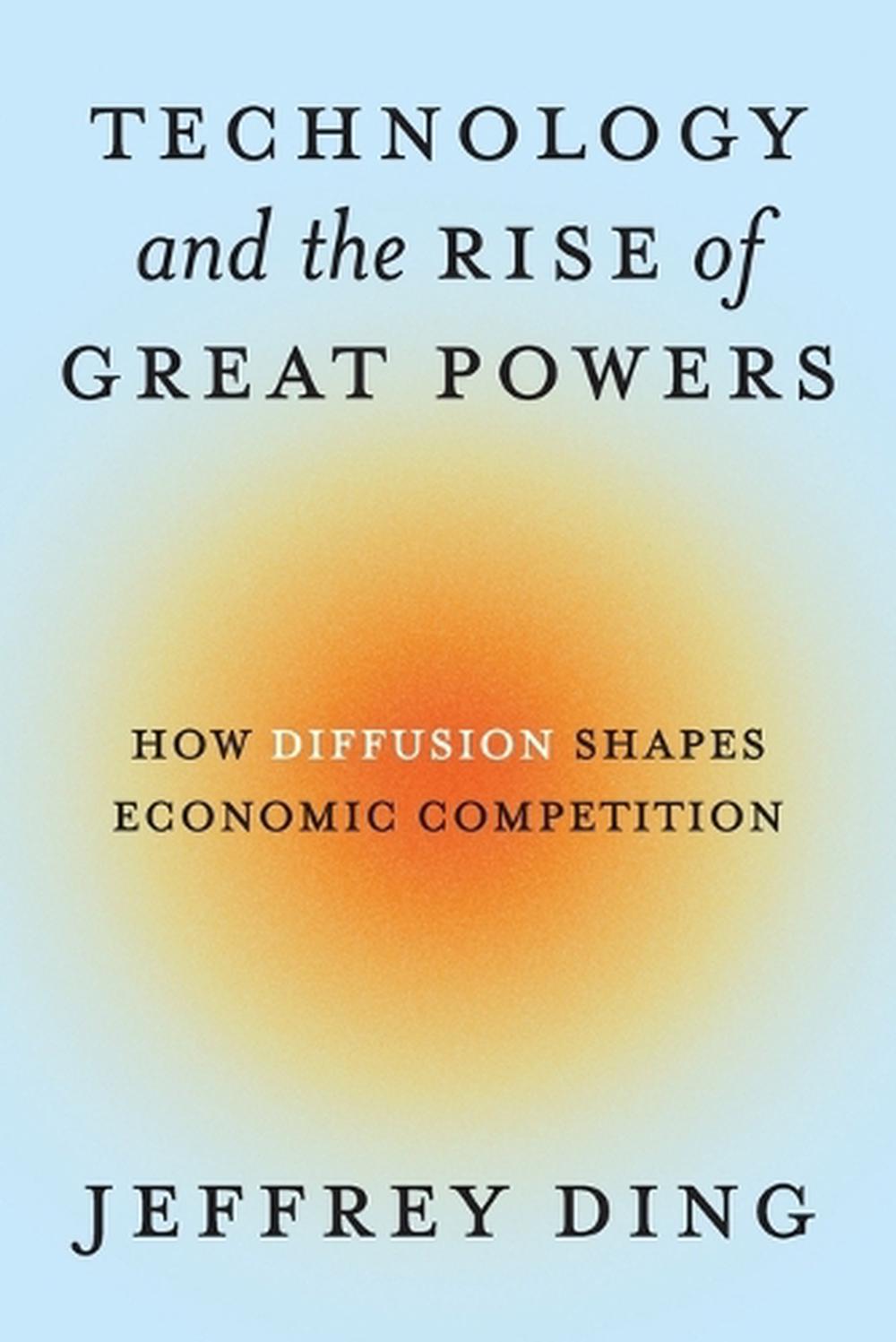
Technology and the Rise of Great Powers
how diffusion shapes economic competition
- Paperback
320 pages
- Release Date
19 August 2024
Summary
The Technological Edge: Power Shifts in the Age of Innovation
A novel theory of how technological revolutions affect the rise and fall of great powers.
When scholars and policymakers consider how technological advances affect the rise and fall of great powers, they draw on theories that center the moment of innovation the eureka moment that sparks astonishing technological feats. In this book, Jeffrey Ding offers a different explanation of how technological…
Book Details
| ISBN-13: | 9780691260341 |
|---|---|
| ISBN-10: | 0691260346 |
| Series: | Princeton Studies in International History and Politics |
| Author: | Jeffrey Ding |
| Publisher: | Princeton University Press |
| Imprint: | Princeton University Press |
| Format: | Paperback |
| Number of Pages: | 320 |
| Release Date: | 19 August 2024 |
| Weight: | 534g |
| Dimensions: | 24mm x 292mm x 145mm |
You Can Find This Book In
What They're Saying
Critics Review
“A Chicago Council on Global Affairs Read of the Year”“One of the best books examining … how technology enables national power is from Jeffrey Ding… . An important and interesting book.” * Information Technology & Innovation Foundation *“Brilliant… . [Technology and the Rise of Great Powers] is one of the most important books in international relations to be published in years.” * Choice *”[Technology and the Rise of Great Powers’s] most significant contribution is its framework for analyzing how technology influences international power dynamics across populations. Instead of focusing on the technological capabilities and resources of companies like OpenAI and DeepSeek, Ding urges social scientists to adopt a long-term historical perspective—one that prioritizes skill in‐frastructure and diffusion over innovation as the primary driver of international power.”—Sebastian James Rose, H-Net Reviews“A timely examination of how technological change can bring about power transitions and points at the humble, yet essential, process of technological diffusion.”—Ludovica Meacci, International Affairs“Magisterial.”—Sebastien Laye, Washington Examiner
About The Author
Jeffrey Ding
Jeffrey Ding is assistant professor of political science at George Washington University. He also holds research affiliations with the Foreign Policy Research Institute, the Elliott School of International Affairs, and the Centre for the Governance of AI.
Returns
This item is eligible for free returns within 30 days of delivery. See our returns policy for further details.




